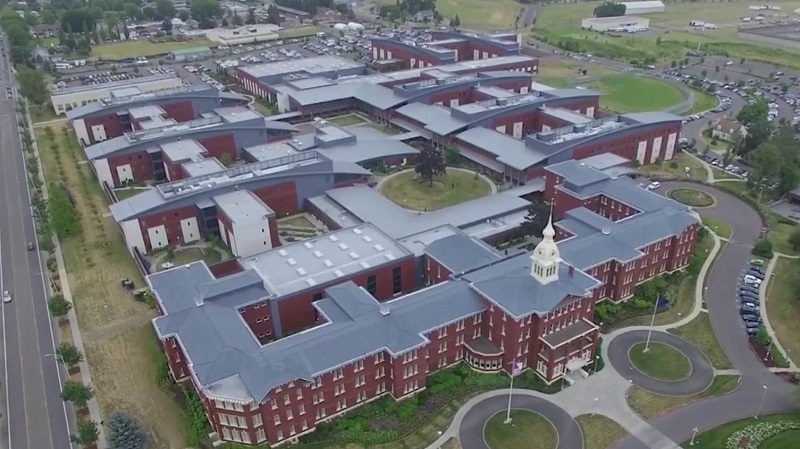PORTLAND, Ore. (KOIN) — The Oregon State Hospital treats the most severe mental health patients in the state. The system it’s part of is bursting at the seams even though, overall, the state is spending more than $3 billion on behavioral health.
In April, the man who directs the state’s mental health programs, Steve Allen, told lawmakers what he’s facing.
“We are really in an untenable position with our state hospital in which we have almost no capacity right now to admit people under civil commit, which puts tremendous pressure on the rest of the system,” Allen said then.
In the last several years, the number of patients who are sent to the hospital to determine if they’re fit to stand trial has increased dramatically, compared to patients not accused of committing a crime. That share from the criminal courts is 69% of the 511 total patients at the Salem Hospital, compared to about 11% a decade ago.

“And those patients are sicker than our general population,” said hospital spokesperson Rebeka Gipson-King.
Adding to the stress: 30 patients and 120 staff members tested positive for COVID as of April 2021. Nearly 700 employees have taken some sort of COVID leave.
“We are in the midst of a crisis,” Allen said.
To ease the pressure long term, the Oregon Health Authority said it needs to open 2 units at its facility in Junction City, which have never been used since the facility opened less than a decade ago.
That’s not cheap though. The state could open 50 more beds to treat approximately 360 more people over the next two years at a cost of $31 million.
But that’s only part of the solution.
OHA officials told lawmakers the state needs to also invest in residential treatment homes for young adults as well as housing assistance for people leaving mental health treatment, and invest in helping patients find work to break the cycle of people returning to mental health crises.
The Oregon legislature is working on this issue. One bill would establish a 3-digit mental health emergency number. People would dial 988 (similar to 911). Another bill would fund more mobile crisis units.
“Sometimes,” Allen said, “it’s the failure to invest in what’s needed that undermines the investments we’ve already made and takes away from a person’s ability to manage it on their own.”